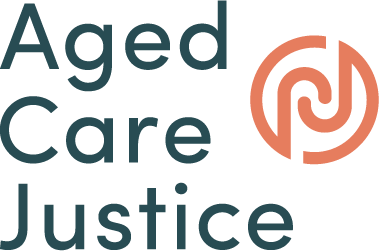Whistleblowing Protections in Aged Care
By Zara Bendit-Rosser[1]

The Aged Care Royal Commission
The Royal Commission into Aged Care Quality and Safety released its final report in May 2021. Numerous submissions from residents, family members, witnesses and employees stressed instances of substandard care,[2] with 1 in 3 recipients of care affected.[3] Exceedingly high levels of abuse and neglect within facilities was also uncovered[4], with those in charge of facilities often unaware of its extent, or sometimes even turning a blind eye.[5] One of the predominant systemic issues driving this finding was that management systems and workplace culture often limit the ability for affected individuals to have their voices heard[6] due, at least in part, to inadequate complaint handling systems.[7]
Recent Reforms
Those who experience or witness malpractice, in any medical setting, must be assured that they will not face retribution if they speak out about substandard care.[8] This highlights the importance of protections for individuals who ‘blow the whistle’ on poor practices, whether they be staff or residents. Whistleblowing – or “patient advocacy” – in the nursing profession typically refers to reporting wrongdoing in situations where subpar, unethical or illegal practices occur.[9]
Legislative protections for whistleblowers by the Commonwealth have increased over the years. In 2019, the Treasury Laws Amendment (Enhancing Whistleblower Protections) Act 2019 (Cth) was introduced to protect individuals associated with public or large proprietary companies from being prosecuted for whistleblowing. Aged care facilities that did not fall under this umbrella will now be protected under the Aged Care Legislation Amendment (Serious Incidents Response Scheme) Act 2021 (Cth). This reform provides protections from any civil or criminal liability and voids contractual obligations when disclosures are made by residents, family members, other important associates of the residents, or those who work or volunteer in an aged care setting.[10]
Such provisions are supported by the Serious Incidents Response Scheme which mandates that occurrences of sexual misconduct, neglect, psychological or emotional abuse, unexpected death, inappropriate use of restrictive practices, unreasonable use of force or stealing or financial coercion be reported.[11]
Moving forward
These legislative amendments are pivotal in fostering a transparent, safe and patient-centred workplace. However, to change the historical implications associated with whistleblowing and thus effect systemic change, a deeper cultural shift may be required.
Nurses who “blow the whistle” in health care settings have experienced harsh reprisals, including economic detriment,[12] bullying, damaged managerial and collegial relationships and even job loss.[13] Families of whistleblowers can also be affected, especially if these cases are exposed to the general public.[14] These harsh repercussions create even larger barriers for staff members who may be of a lower socio-economic background; have limited English language proficiency; or are reliant on working visas, as they may perceive themselves to have lower job security.[15]
Thus, aged-care providers must reform their policies, training and practices to align with these recent legislative reforms to ensure that residents, family members and employees alike will not face retribution when reporting instances of substandard care. Not only should employees be protected from the above-mentioned consequences: they should be encouraged to call attention to wrongdoing. However, relevant authorities’ responses to whistleblowing too frequently focus on the person raising the issue, as opposed to the message conveyed.[16] Rather, complaints and reports should be viewed as an opportunity to improve provider services. When residents and workers fear reprisal or managerial bodies are quick to dismiss reports, workplace practices will not improve.[17]
While the choice of whether to blow the whistle may be influenced by differing perceptions of harm, divergent belief-systems may also play a role. Nurses adhering to more traditional practices characterised by rigidity and hierarchical structures may have been seen as more likely to remain silent in instances of substandard care, while employees working from an ethical patient advocacy model are more likely to raise issues encountered.[18] Thus, building a client-centred workplace culture is imperative in the aged care system.
Additionally, poor care or abuse may go unreported due to inappropriate staffing levels and inconsistent training. In 2019, the Australian College of Nursing (ACN) released a white paper discussing these issues with reference to the Unregulated Health Care Workforce (UHCW) which comprises 70% of workers in the aged care industry.[19] The UHCW is trained to support regulated healthcare professionals and in practice undertake a range of duties spanning from domestic assistance to personal care. These include giving medications, treating skin wounds and doing health assessments.[20]. Despite evidence indicating that consumers will receive better and safer care when registered nurses are on site,[21] this is not currently mandated by legislation.
Rather, aged care facilities are increasingly implementing models in which the UHCW act as substitutes for registered nurses.[22] While these workers provide invaluable support, their training is not designed to provide the standard of care which can be offered by regulated healthcare professionals. The Australian Council of Trade Unions launched a campaign in 2020 advocating for adequate staffing within age care facilities which would require individuals with a range of differing qualifications to be on site at all times[23]- according to the ACN this should include at least one registered nurse.[24] It is vital that these mandates are legislated; if staff are adequately trained and rostered on to have the capacity to deal with care issues appropriately, consumers will receive improved care and instances where whistleblowing may arise may be mitigated.
The Royal Commission held workplace culture to be a primary driver of performance in this industry. The recent whistleblower protections are a strong step in the right direction, but must be complemented by the enforcement of good governance practices by managerial bodies. Providers must meaningfully engage with the elderly clients and centre their decision-making around residents’ experiences.[25] In doing so, residential aged care facilities and home care services will grow to reflect the primary intent of aged care providers, to listen to recipients of care and place their needs at the forefront of practices.[26]
Get Help
If you or someone you know needs legal assistance, we encourage you to fill out ALARM’s GetHelp form on our website at www.ALARM.ORG.AU; or contact ALARM on (03) 9016 3248; or email us on info@agedcarejustice.org.au. You may then select, or, if you wish, we will direct you to, one of our Allied Law Firms for an initial meeting and advice, at no cost to you. Thereafter, you can decide whether to proceed with a formal legal complaint. If you do wish to proceed, costs arrangements, if any, will need to be discussed, and agreed, with the firm.
Sources:
[1] Paralegal with Catherine Henry Lawyers, Newcastle, law student at University of Newcastle, ALARM volunteer. The author acknowledges the valuable assistance of senior ALARM volunteer lawyers in the preparation of this article.
[2] Royal Commission into Aged Care Royal Quality and Safety (Final Report, Volume 1, Summary and Recommendations, March 2021) 68. (“Royal Comm. Final Report, Vol. 1”).
[3] Ibid 72.
[4] Ibid 140.
[5] Ibid 72.
[6] Ibid 75.
[7] Ibid 138.
[8] Ibid 140.
[9] Bolsin, Faunce, & Oakley, 2005; Davis & Konishi, 2007 as cited in Jackson et al.(eds), ‘Trial and retribution: A qualitative study of whistleblowing and workplace relationships in nursing’, (2010) 36(1-2) Contemporary Nurse, p 34; Sonja Clearly & Maxine Duke, ‘Clinical governance breakdown: Australian cases of wilful blindness and whistleblowing’ (2019) 26(4) Nursing Ethics, 1039.
[10] Aged Care Legislation Amendment (Serious Incidents Response Scheme) Act 2021 (Cth) s 54-4.
[11] Ibid s 54-3(2).
[12] Lesley M Wilkes, ‘Nurses involved in whistleblowing incidents: Sequelae for their families’ (2011) 18(3) Collegian (Royal College of Nursing, Australia) 102. (“L. M. Wilkes, 2011”).
[13] Jackson et al., ‘Trial and retribution: A qualitative study of whistleblowing and workplace relationships in nursing’, (2010) 36(1-2) Contemporary Nurse 39, 42.
[14] L. M Wilkes, 2011, 103.
[15] Australian Medical Association, Submission to the Royal Commission into Aged Care Quality and Safety, (September 2019) 36, 37.
[16] Sonja Cleary, ‘Nurse Whistleblowers in Australian Hospitals: A Critical Case Study’ (Ph D Thesis, Deakin University, 2014), p 381.
[17] Royal Comm. Final Report, Vol. 1, 53.
[18] Kathryn Ahern, ‘The beliefs of nurses who were involved in a whistleblowing event’ (2002) 38(3) Journal of Advanced Nursing 306-308.
[19] Australian College of Nursing, ‘Regulation of the Unregulated Health Care Workforce across the Health Care System White Paper’ 2019, 10. (“ACN White Paper 2019”).
[20] Ibid 8, 9.
[21] Ibid 11.
[22] Ibid.
[23] Australian Council of Trade Unions, ‘Workers demand Action for Aged Care’ 2020, <https://www.actu.org.au/actu-media/media-releases/2020/workers-demand-action-for-aged-care>.
[24] ACN White Paper, 2019, 5.
[25] Royal Comm. Final Report, Vol. 1, 34.
[26] Ibid, 132, 133.
Disclaimer:
The views expressed in this article are the views of the author. The contents of this article are for general information purposes only and do not constitute legal advice, are not intended to be a substitute for legal advice, and should not be relied upon as such. Legal advice should be sought prior to any action being taken in reliance on any of the information. If you are in need of legal advice and/or assistance about aged care matters, please seek legal advice directly or via ALARM’s GET HELP form on its website: www.agedcarejustice.org.au.
